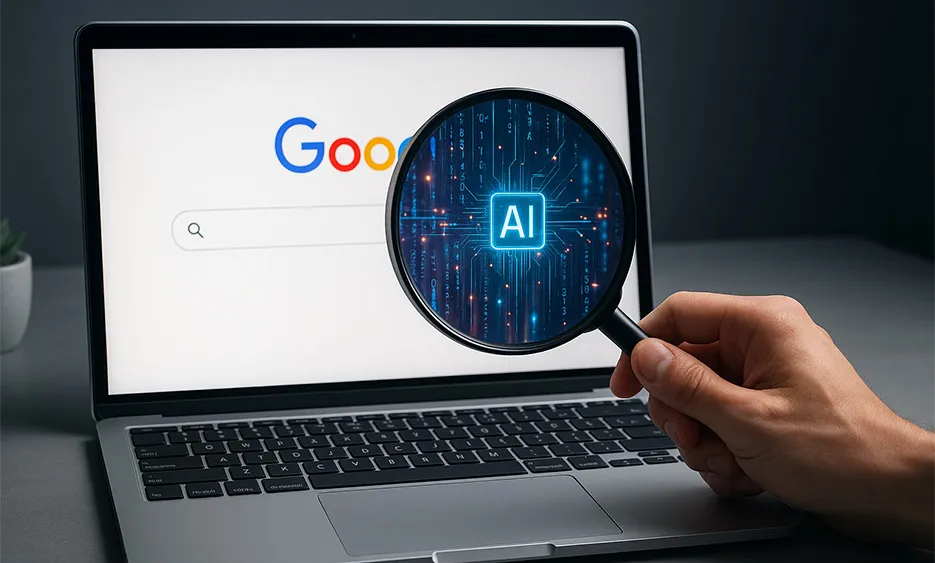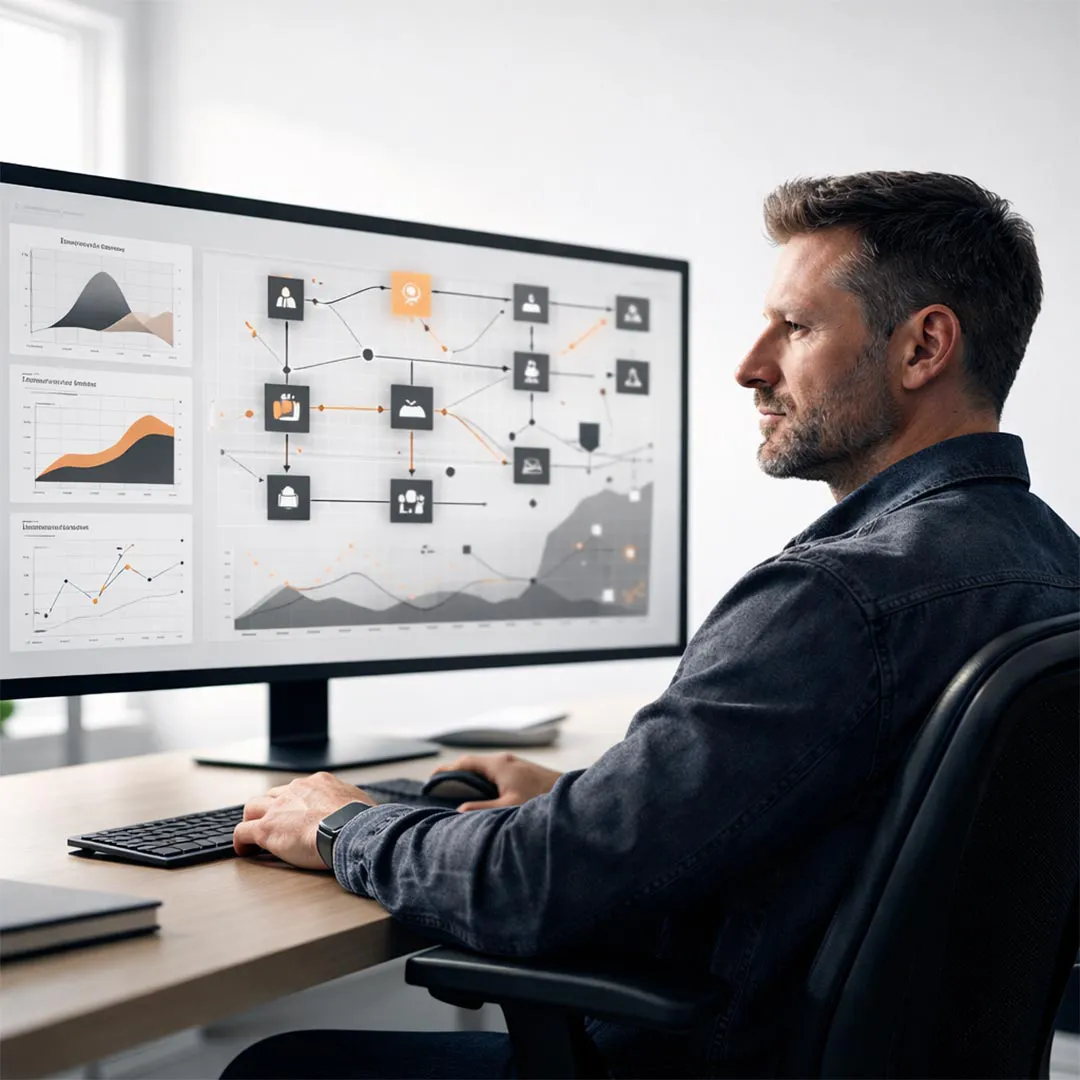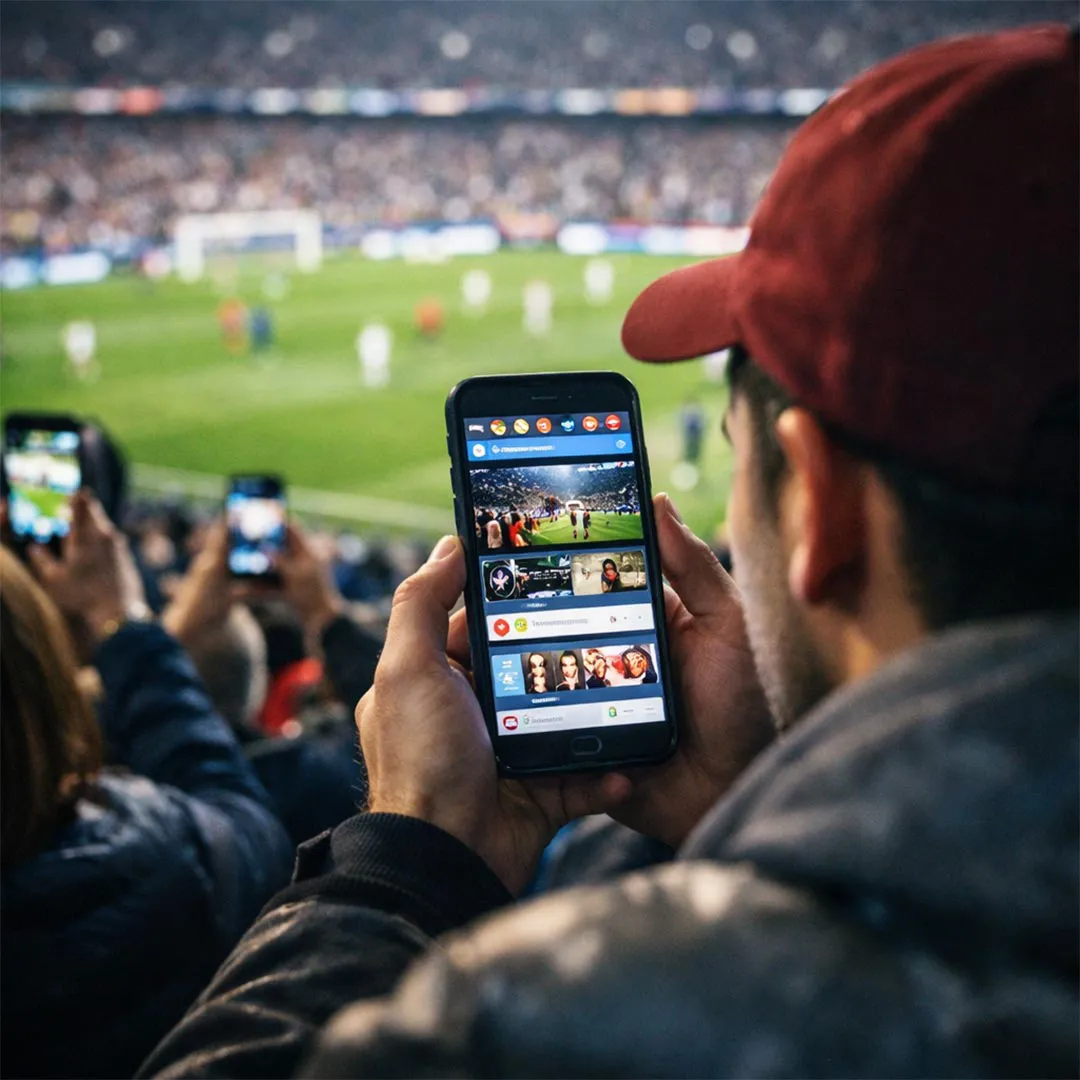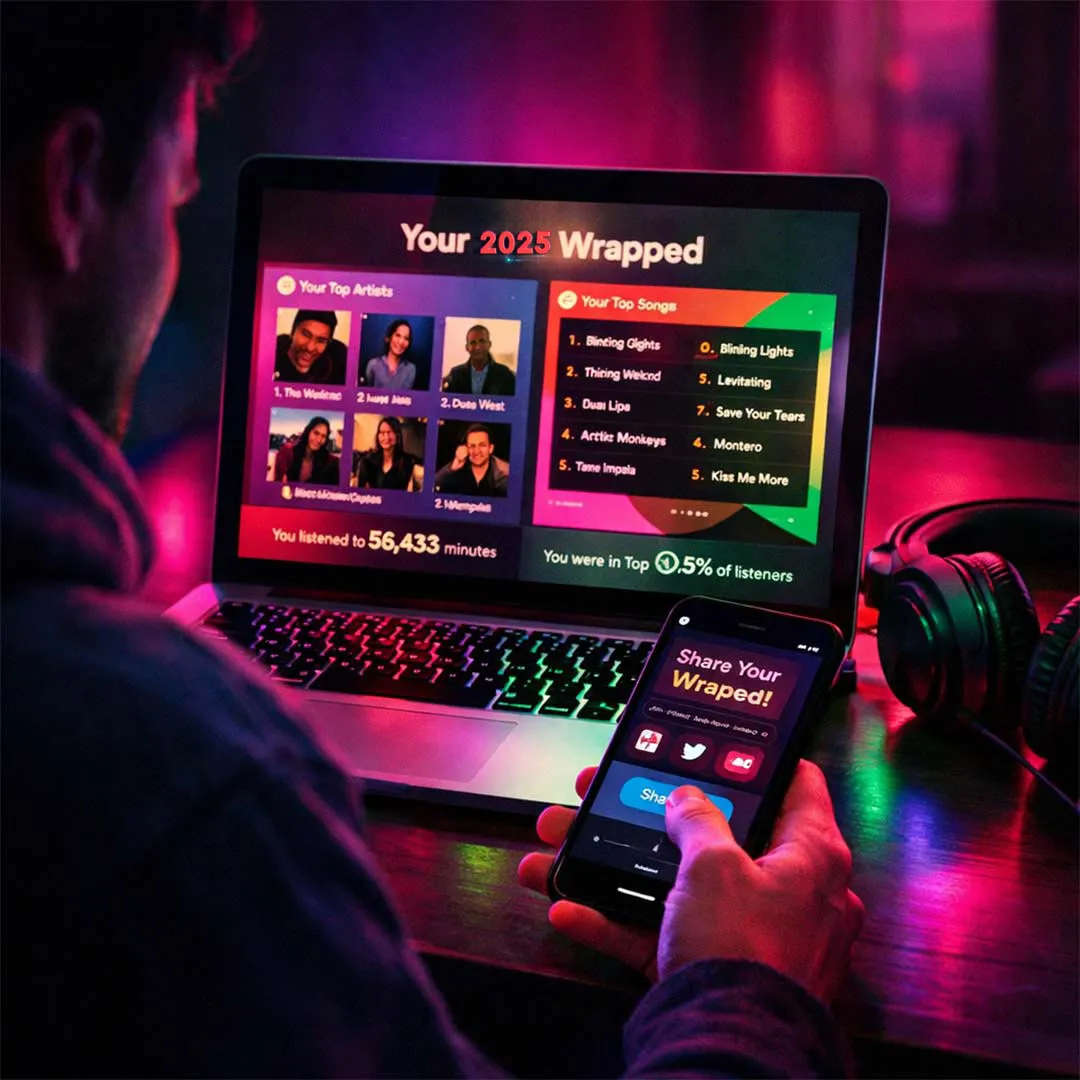
How you can benefit from smart search engine advertising in 2025
28. August 2025
The integration of artificial intelligence into search engine advertising is fundamentally and sustainably transforming online marketing. With innovative algorithms and automated processes, companies reach precise target groups and use their budgets more efficiently.
In addition, AI-powered systems dynamically optimize advertising campaigns in real time, making results visible more quickly and measurably improving performance. That’s why the intelligent combination of human expertise with AI tools remains essential to succeed in the digital competition of 2025.
How does AI integration work in search engine advertising?
At the heart of modern SEA strategies is machine learning, as it enables data-driven decisions in real time. Platforms like Google Ads analyze billions of data points, from device type and location to time of day. User behavior and past interactions are also taken into account, allowing bids to be adjusted in real time.
The goal remains clear: companies maximize their conversions while using their advertising budgets efficiently. Smart bidding strategies automate bids for each auction based on the respective conversion probability.
Whether it's target CPA, target ROAS, or conversion maximization, AI strategies adapt flexibly to different marketing goals. In addition, the algorithms continuously learn from results, thereby sustainably improving the performance of future campaigns.
What new AI features are driving Google Ads forward?
Google is increasingly integrating AI features that go far beyond traditional keyword targeting:
- Performance Max combines all Google channels and fully automates the optimization of target groups, creatives, and budgets.
- AI Max enhances search campaigns with context-based targeting and dynamic ad creation.
- Gemini supports automatic text and image generation and enhances content production.
- The Asset Studio provides a central platform for AI-powered creative production, including automated video and image optimization.
These tools help marketers efficiently use different ad formats while ensuring consistent brand communication.
How is AI changing targeting and personalization?
Modern AI analyzes user behavior on a previously unimaginable level, opening up entirely new marketing opportunities. It identifies highly relevant target groups with great precision while also predicting the likelihood of a conversion with exceptional accuracy.
These include:
- Predictive Audiences: Targeting based on user intent and behavioral patterns, far beyond traditional demographic characteristics.
- Lookalike Audiences: Automatically optimized target groups that resemble existing customers.
- Dynamic Ads: Personalized advertisements that adapt to user preferences and current market conditions.
Especially Responsive Search Ads use AI to optimally combine ad headlines and texts in real time, thereby maximizing relevance.
What opportunities and challenges does AI-supported SEA bring?
The advantages are clear: automation saves time and reliably accounts for complex data patterns. It also enables continuous 24/7 optimization, allowing companies to benefit from consistently strong results. As a result, businesses increase efficiency, improve budget allocation, and achieve significantly better campaign outcomes.
At the same time, marketers face challenges:
- Data protection: GDPR-compliant use of AI requires transparency, the protection of personal data, and consistent privacy-by-design principles.
- Algorithmic bias: Biased training data often leads to unfair or discriminatory outcomes, which is why regular audits are absolutely essential.
- Loss of control: Fully automated bidding decisions sometimes lead to non-transparent optimizations, which is why maintaining the balance between automation and manual control remains crucial.
What does the future of SEA with AI look like?
The search landscape is fundamentally changing due to AI, and Google is increasingly integrating ads directly into AI-generated answers. This creates entirely new visibility opportunities, while voice search and visual search are also gaining importance. As a result, multimodal optimization is becoming the standard, since users access information across multiple channels.
An exciting development is the emergence of agentic AI systems, which autonomously manage campaigns and flexibly adapt strategies. They also respond proactively to market changes with minimal human intervention and significantly support marketing teams. Combined with marketing clouds and predictive analytics, marketers gain deeper insights into customer journeys. This allows them to optimize campaigns across multiple platforms and increase their reach.
How do you measure success in AI-supported SEA?
Traditional metrics like open rates or basic click-through rates are becoming increasingly less meaningful and provide less valuable insights. In contrast, AI enables complex and automated performance analyses, resulting in new, precise insights.
For example:
- Multi-touch attribution across all channels and devices.
- Predictive Lifetime Value for forecasting customer value development.
- Data-driven budget allocation based on conversion probabilities.
These metrics enable more precise control and ROI optimization.
How can you successfully integrate AI into your SEA strategy?
A step-by-step implementation is crucial:
1. Ensure data quality: Only clean, valid data provides a solid foundation.
2. Launch pilot projects: Small, measurable tests help to understand and adapt AI tools.
3. Continuous learning: Optimizations and adjustments should be made on an ongoing basis.
4. Conduct training sessions: Teams need AI expertise to handle it confidently.
5. Find the right balance: Automation supports but does not replace strategic thinking.
Conclusion
The integration of artificial intelligence into search engine advertising is now essential because it enables efficient online marketing. It creates automated processes, promotes personalized audience targeting, supports scalable content creation, and simplifies smart budget management.
Successful advertisers view AI as a partner that complements human creativity and elevates SEA to a new level. Those who ignore this development risk significant competitive disadvantages and jeopardize their long-term market position.
As a full-service agency, Media Beats provides expert support in implementing modern AI-SEA strategies. Together, we’ll take your search engine advertising in 2025 to the next level and ensure long-term success.
Contact us now to learn how AI can help you efficiently achieve your performance marketing goals!
Our blog
Latest news
With our blog, you are always close to our work, our current projects and the latest trends and developments in web and print.
Any questions?





